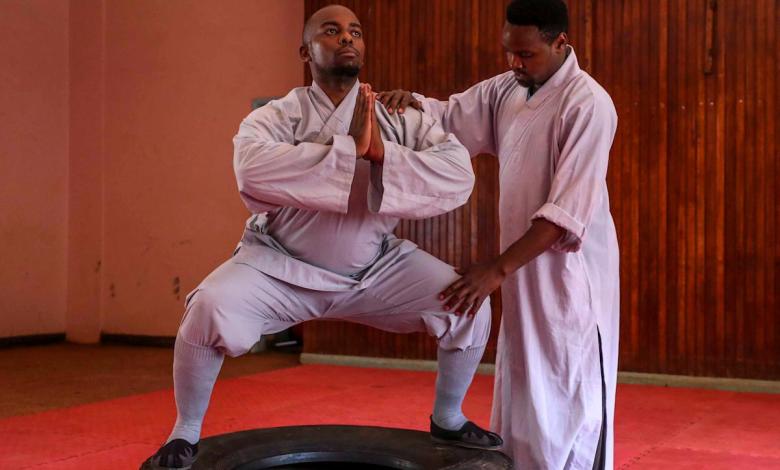Some young Kenyans are turning to kung fu to improve themselves in difficult times

NAIROBI, Kenya (AP) – Growing up in the desert plains of eastern Kenya, Evans Munzaa had his future planned out. He had a vision of a career in information technology, a wife and two children at the age of 30.
But the 31-year-old father hasn’t found a formal job since graduating from college a decade ago, and he doesn’t live with his daughter and mother, citing “the meager income that can’t support the family.”
Munzaa is now interested in the Chinese martial art of kung fu to occupy his time and wants to become a full-time instructor. He hopes that the Kenyan government, which allows kung fu groups to train in its facilities, will provide funding for the sport that has become popular with young people.
Trusted and exciting news every day, right in your inbox
See for yourself — Yodel is your go-to source for daily news, entertainment and exciting news.
“I was forced to find ways to live and earn a daily wage in the informal sector as a thespian, a farmer and doing menial jobs despite my widowed mother sacrificing a lot to pay for my education,” he told the Associated Press while attending a free meeting. training at a community hall in Waithaka area of Nairobi.
An increasing number of young people in Kenya are seeing kung fu as a way to make money. It has emerged as an alternative to the more popular martial art of taekwondo which is part of some school programs in Kenya and has seen some Kenyans compete in international competitions.
The increasing visibility of Chinese workers in Kenya through major infrastructure projects has also sparked interest in their culture in a country known the world over for its runners.
Coach Kennedy Murimi trains a lot of children and youths in the Kawangware area of Nairobi and has seen a huge increase in students. He said the number of people who attended his training has tripled in the past few months to 60.
“This year there are many new people joining us. Most of them say that they have lost their jobs and are trying kung fu to see if they can become coaches or enter competitions and earn money,” said Murimi.
Kenya has an unemployment rate of 12.7%, but the under-35 rate is 67% – part of a wider issue among the majority of young people in Africa.
Ngaruiya Njonge is the president of the Kenya Kung Fu Wushu Federation and first trained in it 30 years ago after being inspired by Chinese martial arts films.
He conducts training near his home in Kiambu district on the outskirts of Nairobi, where rising levels of alcohol and crime have raised concerns among local leaders.
According to Elvis Munyasia, one of Njonge’s students, kung fu helped him.
“Without kung fu, I would be an alcoholic right now,” he said. “Using drugs and many other bad things, maybe stealing, but since I started it has changed my life and given me a purpose in life.
In the past five years, about 4,000 students have received free training sessions through the kung fu clubs Njonge has established in 24 public primary schools across Kiambu county. They lack coaches, he said.
He believes that kung fu teaches discipline, improves health and gives people self-defense skills – not just physically but also mentally and socially.
The student, Aisha Faith, said that she has improved her grades in school because of the accuracy and discipline gained during the training.
“Kung fu has changed me physically, mentally and academically. I was a slow learner, but since I started practicing kung fu, I am sharp and fast, which has greatly improved the way I work in my studies,” he said. , as I now spend most of my time focusing on training sessions.”
For Munzaa, kung fu has also been a lifesaver. He said that he once thought of committing suicide because of money problems, but he said that when he started attending classes, he learned the ability to be patient.
The more he trains, “my mind is trained to persevere in life,” he said.
Source link




